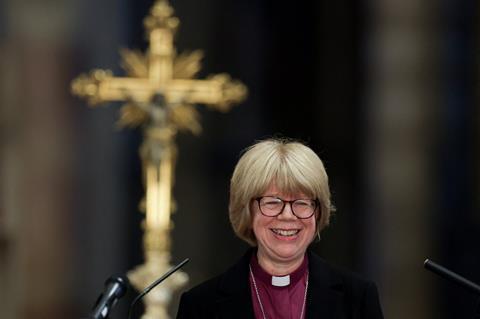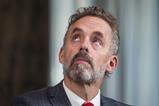Before becoming the first female Archbishop of Canterbury, Dame Sarah Mullally was NHS England’s chief nursing officer. In this 2009 conversation, she shares how her career background shapes her vision for the Church and the challenges of leading with care

She would go on to become the first woman to lead the Church of England — but in 2009, the Rt Rev and Rt Hon Dame Sarah Mullally was still settling into her role as a parish priest in south London.
When she spoke with Andy Peck in 2009, Bishop Sarah Mullally was partway through a transition from Chief Nursing Officer in the Department of Health to ordained ministry, a transition that has since culminated with her holding the most senior positon in the Church of England.
In their conversation, Sarah reflects on how her background in nursing prepared her for church leadership, the similarities and key differences between healthcare and pastoring, and the complexities of leading in an organisation powered by volunteers. She also talks candidly about the resistance she faced as a woman in the Church, and what her role might be in evolving such attitudes to women in ordained leadership.
What led you to leave the NHS and transition to be a deacon and then a priest in the church of England?
I became a Christian at the age of 16 and I felt that what I did with my time was, in a sense, to honour God, but also to care for the people that he loved. So that always motivated me.
I guess there was always a thought in my mind that I may use my skills in a purely Christian environment, or in the Church of England. But when I was young, the Church of England didn’t ordain women, so it wasn’t really an option.
I suppose the transition was gradual. I began to train part time for ordination, and then I was appointed as chief nursing officer to the Department of Health. So the training ran alongside. In a sense, both fed into each other.
There’s always somewhere to go with God
My belief is that organisations like the Church of England deserve the best leadership skills and therefore, with the skills and gifts God had given me, I felt that he was calling me to use those within the Church of England. A lot of people make the transition later on in life, or at retirement, but I wanted to do it full time, at an age where I could still give my best.
You’ve described having a deep love of nursing. I’m sure the Church of England are delighted you made the move, but it was a big decision, wasn’t it?
It was. I do not underestimate how difficult the decision was. There is no doubt in my mind it was the biggest decision I ever made in my life. And I don’t think people really understood, which is probably a reflection of our view of leadership.
Often we confuse leadership with power, status, money, wealth. And I think people saw this young woman, doing very well, with a very good salary, quite a lot of status, and she was giving it all up. Some people really struggled with that. I think there are still those who don’t really understand why I did it.
But sometimes we are called to choose differently. The values of the kingdom of God are not the values of the world. The values of the kingdom are often foolish to the world. It was a difficult decision but one that I absolutely don’t regret.
Are there crossovers between nursing and pastoring?
Well, I couldn’t do what I’m doing without having been a nurse - and, in fact, without having been a civil servant.
I think one of the challenges for any leader is to use their skills - and see how skills are transferable. Often, both nurses and clergy don’t see that they’ve got this set of transferable skills.
So the skills I used as a nurse and as a leader, I use now - whether it is through listening to people, enabling people to have a vision of where they’re going, administrative skills…there are great similarities for me.
Are there any obvious differences?
There are. Within my [previous] employment, I worked with people and, while I may want to enable and facilitate them, at the end of the day, I have been their manager.
The Church of England, like all Christian organisations, is full of volunteers - and therefore there is a different motivation and relationship. You don’t see people as often, for as many hours. So if you want to develop ideas or vision, it takes much longer. The type of contract you have with them is very different, and therefore you work differently with them.
I do come across people who struggle to accept that I would have a legitimate call to leadership as a woman
I think the churches have a lot to learn from other voluntary organisations about how you care for, motivate and enable people.
The other one is that, as a nurse, I’m used to fixing things. If you give me a problem, I want to help you fix it. The truth is that, within a lot of the pastoral encounters I have, they can’t be fixed - and a lot of that is about walking with people, sitting with people, just being with them when there isn’t a solution.
That has been hard for me, because I want to solve it - or help them solve it, but you can’t always.
As you anticipate your new working week, what are the key leadership challenges you will face?
Each of the three churches [I oversee] are developing, or have developed, a vision of what they want to be. What do they see God calling them to be as church? And they have specific actions that relate to it.
Like any organisation, we have a vision, we have a strategy, and we have actions. That language may change a bit depending on the congregation, but seeing those through is often challenging, partly because people don’t meet as often.
The other key challenge is about how you meet conflicting expectations. We have three churches that have come together. They all have different expectations of what it means to be part of a team. They all have different expectations of myself and my colleagues, and so managing those tensions is also a key challenge.
To some extent, I have a portfolio life now. I have a specific role within my congregations. I represent carers of people with mental health issues locally. I’m the mayor’s chaplain this year, so there are a whole range of things! Alongside that, I’m also still a non-executive member of the trust board at the Royal Marsden Foundation Trust, and also a member of the diocesan committee for the Church of England.
The challenge is: How do you manage those different portfolios? Alongside pastoral things that are often acute - people will ring you and they need your help now, or somebody’s died and you need to do a funeral. It’s much harder to balance my diary than it was in the Department of Health.
You said earlier that when you were younger, women could not be ordained the Anglican Church. Obviously, we’re further down the road now but have you found resistance to being a woman in this role?
I think it is fair to say that there is a whole range of theological views about leadership within the Church. I do come across people who struggle to accept that I would have a legitimate call to leadership as a woman, not only within the Anglican Church, but in other churches that I come across.
Sometimes we are called to choose differently. The values of the kingdom of God are not the values of the world
Occasionally, it does make work difficult, but that’s just another hurdle I have to get over. God has called me as a woman, and he’s called me at this time within the Church. It’s part of my role to work with people who find it difficult. And maybe part of my role is to enable them to change, as much as the organisations in which I work.
What advice would you give others who are thinking about a transition into church leadership?
I would encourage people to ensure that their spiritual life is strong, that they are developing themselves as a Christian, but also to seek advice. They’re not always right, but it is worth talking to others.
I’m a great believer that God would not call us to do something that we’re not good at. So don’t go into a job that you think you may be being called for, but you don’t have the skills. God uses our abilities, our skills and our potential, and so there’s something about being realistic about that.
The other thing to say is that, at some point, you have to take that step. You have to decide you’re not one thing, but you’re going to be another. And that is often the hardest thing.
God has chosen to work with us and therefore, whatever our decision is, God will use us. If it doesn’t work out, that’s not the end. There’s always somewhere to go with God. My belief is that you can learn from whatever decision you’ve made, and positively put that into your next move forward.
This article was produced with editorial support from AJ Gomez
Dame Sarah Mullally was speaking to Andy Peck on Premier Christian Radio’s The Leadership File. For more interviews with Christians in leadership, download The Profile podcast






































No comments yet